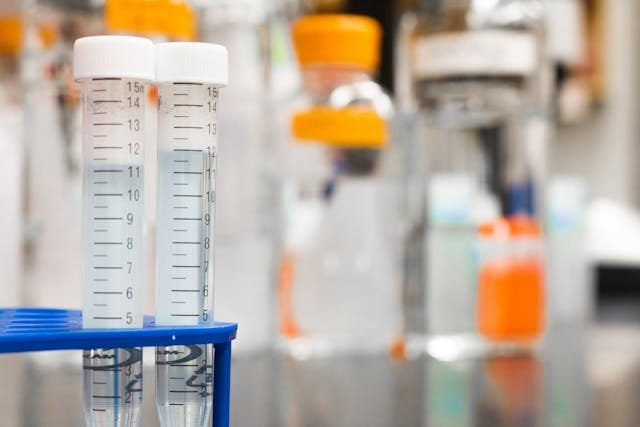Egg Freezing: The Ultimate Guide
What is Egg Freezing? | Egg Freezing Costs | Things To Consider | Comparing Costs Internationally
Ever wondered how much egg freezing really costs? You’re not alone.
The world of fertility treatments constantly evolves, and egg freezing has become a popular choice for many women. As more women look into egg freezing as a way to preserve fertility, the financial aspect becomes a central concern. Therefore, understanding these costs is essential for making an informed decision as costs often exceed $8,000 to $15,000 (£6,000 to £11,000) which does not include medication costs.. Egg freezing isn’t just about the procedure; it’s about navigating a range of expenses that can add up.
But what exactly is egg freezing, and how does it work? And, what’s the bottom line for egg freezing costs?
Below, you’ll find everything you need to know about the egg freezing process, and what to expect financially!
What is Egg Freezing?
Egg freezing, also known as oocyte cryopreservation, is a process where a woman’s eggs (oocytes) are extracted, frozen, and stored for future use. This technology allows women to preserve their fertility until they’re ready to conceive. In the next section, we’ll take you through the step-by-step process of egg freezing.
The Egg Freezing Process
The egg freezing process involves several key steps:
1. Consultation and Assessment:
The first step is to meet with a fertility specialist. During this visit, the doctor will review your medical history, conduct tests, and explain the entire process.
- Medical History Review: The specialist will ask about your reproductive health, any existing medical conditions, and family history.
- Tests and Examinations: Usually, blood tests and an ultrasound are conducted to assess your ovarian reserve and overall reproductive health.
- Discussion of Expectations: You’ll discuss your reasons for freezing your eggs, the potential success rates, and any risks involved.
Cost: The initial consultation typically costs between $200 and $400 (£150-£300). This fee can vary depending on the clinic and location.
Questions To Ask Your Specialist:
This meeting is a great time to ask questions and address any concerns you might have. Before proceeding with egg freezing, having an open dialogue with your fertility specialist is essential. Here are some crucial questions to ask:

- What are my chances of success based on my age and health?
- How many cycles of ovarian stimulation will I likely need?
- What are the costs involved, and are there any financing options?
- What are the potential side effects and risks of the hormone medications?
- What are my options for the future use of these eggs?
2. Ovarian Stimulation:
Hormones are used to stimulate the ovaries to produce multiple eggs. The more eggs produced, the higher the chances of future success. This step involves:
- Self-Administered Injections: You will give yourself hormone injections at home for about 10-14 days. These injections help your ovaries produce multiple eggs rather than the single egg generally produced each menstrual cycle.
- Regular Monitoring: Expect to visit your clinic frequently for blood tests and ultrasounds. These check-ups monitor how your body responds to the medication and ensure the eggs are developing properly.
Self-administered hormone injections, which are part of ovarian stimulation, can be quite costly. The overall cost depends on the specific medications and dosage prescribed by your specialist.
Costs: Expect to spend around $2,000 to $5,000 (£1,500-£3,800) on medications.
Now the question is, does egg freezing affect fertility?
The great thing about freezing your eggs is that it does not harm your natural reproductive health. The process of egg freezing doesn’t deplete your ovarian reserve permanently. The hormones used in ovarian stimulation aim to mature multiple eggs in one cycle but do not affect the regular egg maturation process.
3. Egg Retrieval
Once your eggs are mature, the next step is egg retrieval. This is a minor surgical procedure performed usually at the clinic under sedation, where the doctor will collect the eggs from your ovaries. The procedure usually takes about 20-30 minutes. You might experience some cramping or spotting afterwards, but most women feel back to normal within a day or two. However, you’ll most likely need someone to drive you home afterward due to the sedation.
Cost: This minor surgical procedure generally costs between $5,000 and $7,000 (£3,800-£5,300).
4. Egg Freezing
The final phase is the cryopreservation (freezing) of your eggs and storage. This ensures they are safely stored until you’re ready to use them for future use.
- Vitrification Process: Eggs are frozen using a rapid-freezing technique called vitrification that prevents ice crystals from forming and damaging the eggs.
Costs: estimated to be around $500 to $1,000 (£380-£750).
- Storage: The frozen eggs are kept in a specialized lab. They can be stored for many years, maintaining their usability until you’re ready for pregnancy. Studies have shown that eggs can remain viable after being frozen for up to 10-15 years, if not longer.
Cost: Annual storage fees range from $500 to $1,000 (£380-£750) per year. It’s important to factor in these costs when thinking about long-term storage.
These fees cover the cost of keeping your eggs in a controlled environment at the fertility clinic. Some clinics might offer discounted rates for long-term storage plans, so it’s worth inquiring about your options.
What is the Best Age to Freeze Eggs?
The ideal age for egg freezing is between your late 20s and early 30s. This period is considered optimal because the quality and quantity of eggs are typically higher.
Here’s a quick breakdown:
- Late 20s to Early 30s: Best success rates with higher quality eggs.
- Mid-30s: Still good, but a gradual decline in egg quality begins.
- Late 30s to Early 40s: May require more cycles to retrieve adequate eggs due to decreased quantity and quality.
Freezing eggs at a younger age maximizes the chances for future pregnancy, providing a buffer against the natural decline in fertility that comes with age.
A Deeper Look At Additional Egg Freezing Costs

Future Fertility Treatments
Your frozen eggs are an asset for future family planning. If you decide to use them later, there are additional costs associated with fertility treatments like IVF (in vitro fertilization), and ICSI (Intracytoplasmic Sperm Injection).
- Thawing the Eggs: The first step in using your frozen eggs involves thawing them. This process generally costs between $1,000 and $2,000 (about £760 to £1,520).
- IVF Procedure: The in vitro fertilization procedure itself comes with its own set of expenses. This involves fertilizing the eggs under lab conditions. You can expect to pay around $12,000 to $15,000 (approximately £9,120 to £11,400) per cycle. Read more about IVF here!
- Embryo Transfer: Once the eggs are fertilized and become embryos, you’ll need to have them transferred to your uterus or that of a surrogate. This procedure typically costs $3,000 to $5,000 (around £2,280 to £3,800).
- ICSI (Intracytoplasmic Sperm Injection): While not always needed during the freezing phase, this can be used if you decide to fertilize your eggs in the future. It generally costs between $1,500 and $2,500 (about £1,140 to £1,900).
- Additional Medications: Just like with the initial freezing process, using the eggs later might require additional medications. These can range from $1,000 to $3,000 (approximately £760 to £2,280).
These costs can add up quickly, so it’s important to plan ahead. Think of your egg freezing journey as both a short-term and long-term investment in your reproductive health.
Follow-Up Appointments
After your eggs have been retrieved and frozen, you’ll need to attend several follow-up appointments. These visits ensure your body has recovered well and your frozen eggs remain in good condition. If these appointments are not included in your initial costs, then they can add up pretty quickly! Follow-up appointments to consider include:
- Post-Retrieval Checkups: After your egg retrieval, you’ll have to attend post-retrieval checkups. These typically occur within a week of the procedure. Costs usually range from $100 to $200 (approximately £76 to £152) per visit.
- Monitoring Appointments: Some clinics require regular monitoring, even after the initial procedure. This ensures the integrity of your frozen eggs. Expect this to set you back about $150 to $250 (around £114 to £190) per appointment.
- Consultation Fees: If you need to consult your fertility specialist for any concerns or future plans regarding your stored eggs, you might face consultation fees. These can be between $150 to $300 (approximately £114 to £228).
Cost Variations
The cost of medications for egg freezing can vary widely due to several factors. Understanding these can help you anticipate and plan for potential expenses:
- Dosage Requirements: The amount of medication you need depends on your ovarian reserve and how your body responds to the treatment. Higher doses mean higher costs.
- Location: Medication costs can vary based on where you live. Urban areas might have higher prices compared to rural regions due to the demand and availability of services.
- Generic vs. Brand Name: Choosing generic medications, when available, can significantly reduce costs compared to brand-name options.
Things To Consider Before Egg Freezing?

Success Rates of Egg Freezing
When it comes to success rates, it’s essential to consider several factors:
- Age Factors: Women over the age of 38 may find lower success rates due to declining egg quality.Women who freeze their eggs at a younger age, mainly before 35, generally have higher success rates. This is because egg quality tends to decline with age.A study published in the journal Human Reproduction found that the number of births per egg was 6.5% in women who froze their eggs before the age of 36, compared to 3.3% in women who froze their eggs after the age of 36.1
- Underlying Health Issues: Certain health conditions might make ovarian stimulation and egg retrieval risky.
- Thawing and Fertilization: Not all frozen eggs will survive the thawing process, and not all will successfully fertilize. On average, around 75-80% of eggs survive thawing, and about 70-80% of those fertilize successfully. It’s also worth noting that these percentages are averages, and individual experiences may vary based on personal health and specific circumstances.
Emotional Considerations
There are many things to consider when it comes to egg freezing, but the emotional and physical considerations sometimes gets overlooked!
The process can have an emotional impact on some women, as it can be a stressful process from daily hormone shots to waiting for results. Also, sometimes freezing your eggs can bring about some side effects caused by hormone medication, such as bloating, mood swings and mild discomfort. Having emotional support is key.
It’s also important to think about how long to store your eggs and what to do with unused ones—donate or discard. This too will have an emotional impact.
Financial Aid and Insurance for Egg Freezing
Egg freezing can be pricey, but financial aid and insurance can help. By exploring these options, egg freezing can be more affordable, here’s how:
Financial Aid
- Fertility Loans: Companies like Prosper Healthcare Lending and CapexMD offer loans with flexible payments and interest rates.
- Grants and Scholarships: Non-profits like the Cade Foundation and Baby Quest Foundation offer financial support.
- Clinic Payment Plans: Many clinics provide in-house financing to spread out costs over several months.
Insurance
- Check Your Policy: Some insurance plans cover consultations or medications. Review your policy to see what’s covered.
- Employer Benefits: Companies like Facebook, Google, and Apple offer fertility preservation benefits. Check with HR.
- State Mandates: States like New York, New Jersey, and Illinois mandate insurance coverage for infertility treatments, including sometimes egg freezing.
Tax Benefits
- Medical Expense Deduction: You can deduct egg freezing costs that exceed 7.5% of your adjusted gross income.
- HSAs and FSAs: Use pre-tax dollars for medical expenses, including egg freezing.
Crowdfunding Platforms like GoFundMe let you share your story and raise funds from friends, family, and strangers.
Comparing Egg Freezing Costs Internationally

When considering egg freezing, costs can vary significantly depending on where you are in the world. Let’s take a closer look at the differences in costs between various countries, so you can better understand the global landscape.
United States
The United States is known for its advanced medical technology and comprehensive fertility treatments. However, this often translates into higher costs.
- Initial Consultation: The first consultation can range from $150 to $300 (approximately £114 to £228).
- Medication: Costs for medications might be between $4,000 to $7,000 (roughly £3,040 to £5,320).
- Egg Retrieval Procedure: This can set you back around $5,000 to $8,000 (approximately £3,800 to £6,080).
- Storage: Annual storage fees range from $500 to $1,000 (around £380 to £760).
United Kingdom
In the UK, egg freezing costs are somewhat lower due to different healthcare structures and regulatory environments.
- Initial Consultation: Expect to pay between £150 and £250 (around $200 to $330).
- Medication: These costs typically range from £1,500 to £2,500 (roughly $1,980 to $3,300).
- Egg Retrieval Procedure: This procedure might cost around £3,000 to £5,000 (approximately $3,960 to $6,600).
- Storage: Annual storage fees are about £300 to £600 (around $396 to $792).
Spain
- Initial Consultation: Costs are typically between €100 and €200 (approximately $110 to $220 or £88 to £176).
- Medication: Medication costs can range from €2,000 to €3,000 (around $2,200 to $3,300 or £1,760 to £2,640).
- Egg Retrieval Procedure: This might set you back approximately €3,500 to €5,000 (about $3,850 to $5,500 or £3,080 to £4,400).
- Storage: Annual storage is around €200 to €400 (approximately $220 to $440 or £176 to £352).
Spain is increasingly popular for fertility treatments due to its high standards and more affordable prices.
India
India offers some of the most cost-effective options for egg freezing, attracting many international patients.
- Initial Consultation: Costs can be as low as ₹3,000 to ₹5,000 (around $40 to $70 or £30 to £57).
- Medication: These expenses typically range from ₹60,000 to ₹100,000 (approximately $800 to $1,300 or £610 to £950).
- Egg Retrieval Procedure: The procedure costs about ₹100,000 to ₹150,000 (around $1300 to $2000 or £950 to £1425).
- Storage: Annual storage fees are between ₹10,000 to ₹20,000 (approximately $130 to $260 or £95 to £190).
Brazil
Brazil offers a balance of high-quality medical care and reasonable costs for egg freezing.
- Initial Consultation: Costs typically fall between R$500 to R$1,000 (around $100 to $200 or £76 to £152).
- Medication: Medication prices are usually between R$5,000 to R$8,000 (approximately $1,000 to $1,600 or £760 to £1,216).
- Egg Retrieval Procedure: This costs about R$15,000 to R$20,000 (around $3,000 to $4,000 or £2,280 to £3,040).
- Storage: Annual storage fees can range from R$1,000 to R$2,000 (approximately $200 to $400 or £152 to £304).
Comparing these costs worldwide highlights significant variations, influenced by local healthcare systems, living costs, and medical advancements. This global perspective helps you choose the best option based on both quality and affordability.
So That’s Egg Freezing In A Nutshell!
Freezing your eggs is a powerful option to take control of your reproductive future. It gives more women control over their reproductive future, providing flexibility for career planning, medical treatments, or personal reasons.
It’s crucial to plan both financially and emotionally. Compare costs across different countries if budget constraints are a concern. Always consult with a fertility expert to discuss your unique situation and to explore financial assistance or insurance options that might make this empowering choice more accessible.
Explore our latest posts:
- Seed Cycling: A Natural Approach to Hormonal Balance
- The Best Traditional Chinese Medicine For Fertility
- 11 Ways I Reduced My Period Pain with Natural Remedies
- 9 Surprising Habits Making Your Period Worse
- Boost Your Fertility with Magnesium: What You Need to Know
- Cobo, A., Garcia-Velasco, J. A., Coello, A., Domingo, J., Pellicer, A., & Remohí, J. (2016). Oocyte vitrification as an efficient option for elective fertility preservation. Human Reproduction, 31(2), 377-385. https://doi.org/10.1093/humrep/dev319 ↩︎








4 Comments